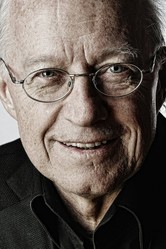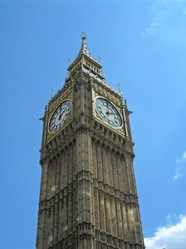For the protagonist and his goals, the path to fulfillment must lead through a series of positive learning experiences. In the drama musical ELISABETH, for instance, the young Empress must overcome her insecurities around her powerful mother-in-law and the strict protocol of the Viennese Court, before she can reclaim control of her own lifestyle.

Creative Writing Tips For A Dramatic Play
by chefkeem
Use these creative writing tips to turn your flat story line into a highly dramatic play that will elicit emotions from your audience.
Choosing a protagonist
The main character and hero of your story
- A protagonist's actions, experiences, sufferings and successes are the main components of your story. It is better to avoid featuring more than one hero; focus instead on the fascinating development of only one main figure.
- Whatever happens to the protagonist is no coincidence. Throughout the story he reveals various aspects of his character, and his subsequent behavior determines the continuation of the story.
- The protagonist should be an active person; a mover and shaker who drives the story forward.
- He or she should be human - not all good, not all bad. The audience must be able to easily identify with his mental and emotional challenges and reactions.
- During the play our hero should grow and learn something, so at the end of the story he or she has become a different, better person than in the beginning.
Elisabeth - the heroine of Michael Kunze's drama musical reclaims her personal freedom from the bondage of the Court protocol
Listen to her song: "I belong to me" (halfway through this video)
The Antagonist
creates tension, aggression, set-backs, suspense...
- The antagonist has the same goal as the hero of our story, but she comes from a different angle and may employ different strategies. In the example of ELISABETH, the Emperor's mother wants to control Elisabeth's lifestyle. So does the young Empress. Their struggle means drama. Big time.
- The stronger and more threatening the antagonist - the greater the tension and drama in our story.
- The antagonist must not necessarily be evil or mean. Her desires may be based on commonly respected values. Indeed, the best antagonistic character may even elicit agreement, if not empathy, from the audience.
- Much dramatic depth can be gained from the repeated clash of two different value and belief systems, although both strive for the same result.
- The race to the finish line, the final showdown - that creates drama!
Other dramatic elements and characters...
- A love story can be a wonderful dramatic element, if it is crucially connected to the protagonist's quest. It may illuminate and clarify the hero's problems for the audience.
- A mentor who is greatly admired by our main character can also significantly contribute to a better understanding of the protagonist's decisions.
- A trickster tries to create discord and confusion. He may offer alternative maneuvers destined to slow down or distract our hero.
Creative writing tips from the master
Drama workshop with Michael Kunze
Dr. Michael Kunze's proven methods of structuring a dramatic story have filled musical theatre houses in Europe and Japan, over and over again. His hit-musicals ELISABETH, REBECCA, DANCE OF THE VAMPIRES, MOZART! and MARIE ANTOINETTE belong to the most successful European drama musicals of the 20th century. REBECCA's Broadway premiere is scheduled for April 22, 2012. To learn more, go to Michael Kunze's website - Musical Workshop Masterclass - and watch videos of his drama workshops and musicals.
More articles on musical drama by Michael Kunze
You might also like
Musical Author - Michael KunzeMusical author Michael Kunze is the creator of the drama musical, a new genre...
Adventures In England 1: Some West End TipsLondon's "Theaterland" in the West End is one of the last bastions of great t...







 How To Cook A Dragon - Quick And Easy Recipes [Photos]on 06/26/2012
How To Cook A Dragon - Quick And Easy Recipes [Photos]on 06/26/2012
 Funny Idioms And Hilarious Sayings - All Newon 04/27/2012
Funny Idioms And Hilarious Sayings - All Newon 04/27/2012
 Pictures Of Texas - Hill Country Wildflowers And Longhornson 04/18/2012
Pictures Of Texas - Hill Country Wildflowers And Longhornson 04/18/2012
 How To Make Money On Wizzley - The Official 2012 Updateon 03/22/2012
How To Make Money On Wizzley - The Official 2012 Updateon 03/22/2012


I hope you can use this small selection of creative writing tips. Please leave a dramatic comment, will ya?
chefkeem, Thank you for all the cues and links. Did you know that the video is not accessible any more? Good thing I have the links to Dr. Kunze's information and works elsewhere.
Thanks for sharing! I guess these archetypes make the creative process easier.
Great news, Katie. Congratulations! :)
Just wanted to let you know you've inspired me to complete a play I had in the works and am thrilled with the outcome. Thanks for all the many supportive tools you provide fellow writers with to stay motivated all the while improving our craft. Much Appreciated, Katie :)
The trickster is my favorite archetype! I love this article, thanks.
Oh how I love this article, I'm a huge fan of theater who's enjoyed writing and directing plays for young actors, what a thrill the stage, the theater! Great piece and wonderful tips, I feel inspired to write something in adult theater now. I love Shakespeare and Elizabethan works. Enjoyed :) Katie
What a nice concise presentation of the main elements. Thanks. Y'all.
You've made some good points here, Chef. It's important to be aware of character development when you write a story or play. Nice reference page for the writer.